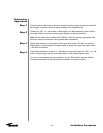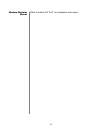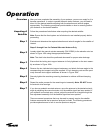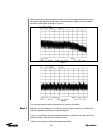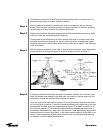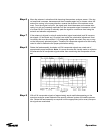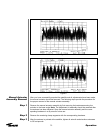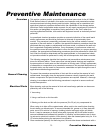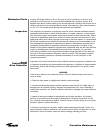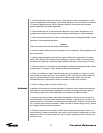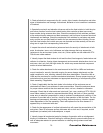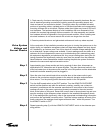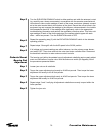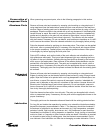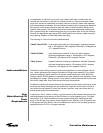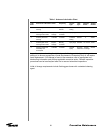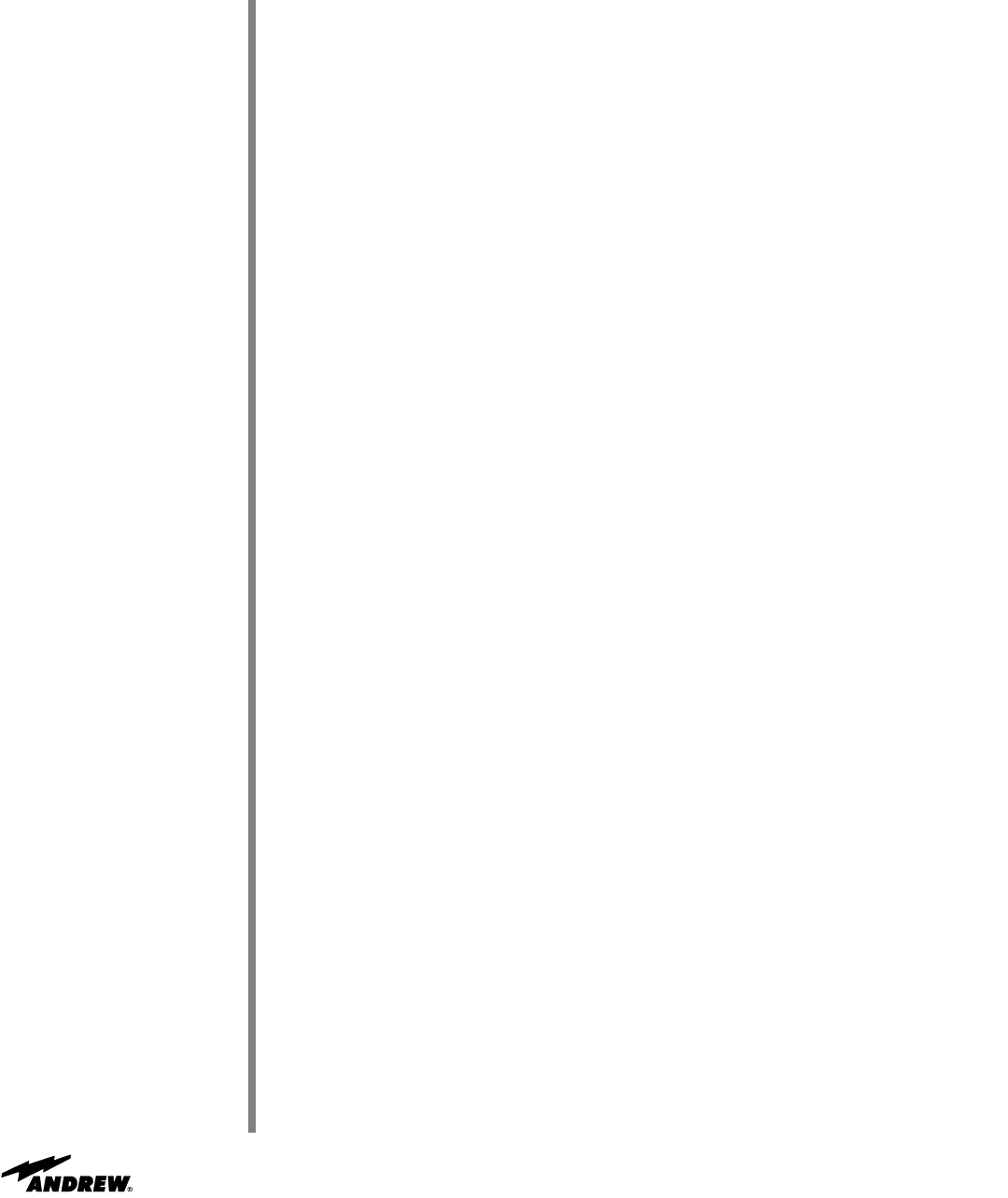
Antenna
75
• Check all electrical components for dirt, chips, cracks, breaks, discoloration or other
signs of deterioration and damage. A discolored, blistered or burnt condition is evidence
of overload. Measure actual value of suspect electrical components and compare
against specified value where applicable.
• Check transformer for an excessive wax deposit on the surface, discoloration or a
pungent odor indicative of burning varnish denoting overheating or a total breakdown.
• Check all terminal blocks for broken or missing terminals and stripped threads. Check
tightness of lead attaching hardware.
Caution
Make sure electrical power has been disconnected.
• Check the motor starters and circuit breakers for free operation. Check tightness of all
wire connections.
• Visually inspect printed circuit board for signs of debris that might short out compo-
nents. Verify that all LED indicators are functioning correctly. Check the terminal block
connectors for tightness of lead attracting hardware and signs of scorching or burning.
• Check for security of all hardware and stripped or otherwise damaged threads. Check
metallic parts for corrosion, dents, distortion and other deformation.
• Check for evidence of water inside the enclosure. If any water is in evidence, check
that all seals are intact and if not, use a coating of RTV-108 (silicone rubber sealant) to
seal any exposed electrical fitting, bolt hole or other possible water entry into the
enclosed electrical components in order to maintain a water proof condition.
• Check or change vapor corrosion inhibitor unit.
Inspection of the antenna conforms generally to standard visual inspection procedures
performed on electromechanical equipment. In addition to these procedures, perform
the following checks and visual inspections for the specific conditions noted:
• Inspect all wiring and cables, particularly the network to enclosure and enclosure to
mount interfaces, for discoloration and burned insulation, moisture entry, corrosion, dirt,
breaks, security of connection, and other signs of deterioration. Examine connections for
dirt, corrosion and mechanical defects. Check for loose or broken lacing and cut, abrad-
ed, frayed, brittle and cracked insulation.
• Examine connectors for corrosion, broken inserts and stripped threads. Check con-
nector shells for distortion and dents, and contact pins for bends, misalignment or other
deformities. Check connector inserts for cracks, carbon tracking, burns or charring indi-
cating arc-over.
Preventive Maintenance



